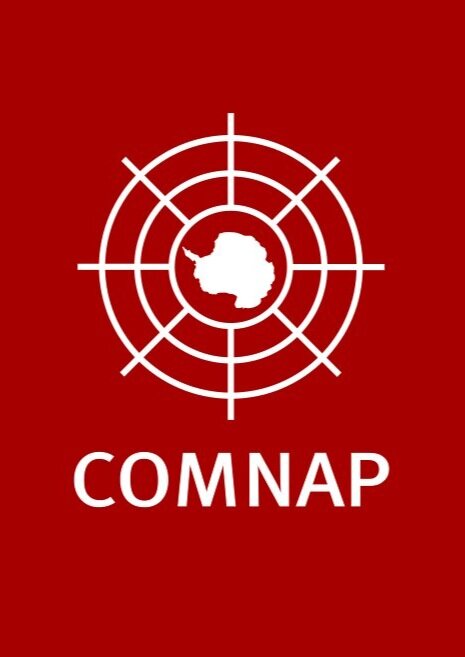
Safety Expert Group
Expert Group Leader: Gen Hashida
Oversight EXCOM members: Ollie Darke
Terms of reference:
Safety of human life is of fundamental importance to COMNAP and COMNAP Member and Observer National Antarctic Programs.
Share and review safety, contingency planning and emergency policies and practices used in Antarctica.
Advance discussion and provide leadership on constant improvement in coordination and response in the event of a SAR incident.
Work with all COMNAP Expert Groups on common safety issues.
Consider safety initiatives that would benefit all National Programs.
This Expert Group includes a focus to prevent harassment in the Antarctic, to concentrate on well-being and to acknowledge, confirm and support equity, diversity and inclusion in all Antarctic activities.
This Expert Group works closely with the Rescue Coordination Centers that have responsibility for coordination and response related to a region of the Antarctic Treaty Area.
The Safety Expert Group includes the Fire Suppression Working Group.
This Expert Group works on a range of issues related to safety. Safety of human life is a fundamental consideration in all national Antarctic program activities. Below are just a few of the topics we are currently sharing best practice and expertise on. In 2018, after a workshop at the COMNAP AGM 2018, this group added a focus on preventing harassment in the Antarctic and empowering all programs to embrace equity, diversity and inclusivity in all Antarctic operations, in research, and in on- and off-ice activity.
Preventing Harassment & Focusing on Equity, Diversity and Inclusivity
COMNAP is committed to preventing harassment in the workplace. This includes at our Secretariat, during our in-person meetings and at our events. It also includes respectful behaviour during our virtual meetings. For the Secretariat, we follow the University of Canterbury’s policy on prevention of bullying and harassment that can be found here, the University’s equity & diversity policy that can be found here and the University’s practice in case of harmful sexual behaviour.
COMNAP is committed to ensuring our Member National Antarctic Programs are meeting their goals for preventing harassment and for increasing diversity, equity & inclusivity in their Antarctic teams. In support of this, COMNAP convened the “Preventing Harassment Safety Expert Group” Workshop 2018, in Garmisch-Partenkirchen, Germany. Information discussed at the workshop and workshop outcomes can be found here.
As a result of this open and collaborative conversation, we continue to work together to improve gender equality, inclusivity, and for developing recommendations that allow for safe reporting and communication of harassment or unwanted advances or inappropriate behaviour in Antarctica. Also as a result of the workshop, National Antarctic Programs were invited to share their sexual harassment policies and any training and educational materials that support prevention of sexual harassment in the workplace including in Antarctica. All shared documents can be found in the Member’s Only Documents in the COMNAP database.
As agreed during AGM 35 (2023), COMNAP is working on a project on “Ensuring everyone is Welcomed, Safe and Respected (WSR) and Preventing Harassment in Antarctica”. More information about this project, can be found on the WSR webpage.
More information can be found from a range of sources, such as:
Women in Polar Science
Follow them on Twitter (@WomeninPolarSci) and Facebook.
See also Women in Antarctic Research.
Pride in Polar Research
Follow them on Twitter (@pridepolar) and Facebook, and join their mailing list.The APECS Diversity, Equity and Inclusion (DEI) Project
The DEI Project Group aims to ensure that one’s identity is not a barrier to success in polar science. They have compiled a repository of resources on Safety in science, Gender, LGBTQIA+, Ethnicity, Parenthood, Indigenous communities, Disability, Community Guidelines, and Networks.COMNAP has an invited COMNAP representative on the SCAR Diversity, Equity and Inclusion Action Group.
Tsunami Awareness in Antarctica
The 2011 COMNAP report Understanding Risk to National Antarctic Program Operations and Personnel in Coastal Antarctica from Tsunami Events (2011) ran models based on ten historic earthquake events within the Pacific Rim. It revealed that major earthquakes as far away as Alaska could produce significant waves in Antarctica. Other potential sources of tsunami in Antarctica are the Java Trench in the Indian Ocean and the South Sandwich Trench in the South Atlantic. Submarine volcanoes and volcanic islands in the Peninsula region could also be threats.
Download the COMNAP Tsunami Awareness in Antarctica (October 2023) here.
Understanding Risk to National Antarctic Program Operations and Personnel in Coastal Antarctica from Tsunami Events, WP13 submitted by COMNAP to ATCM XXXV can be found here.
COMNAP Preliminary Research Report: Understanding Risk to National Antarctic Program Operations and Personnel in Coastal Antarctica from Tsunami Events, Attachment 1 to WP13 submitted by COMNAP to ATCM XXXV can be found here.
UNESCO/IOC (2020), Preparing for Community Tsunami Evacuations, Manuals and Guides, 82.
English Version
UNESCO/COI (2020), Preparación para Evacuaciones de Comunidades en Caso de Tsunami, Manuales y guías, 82.
Spanish Version
